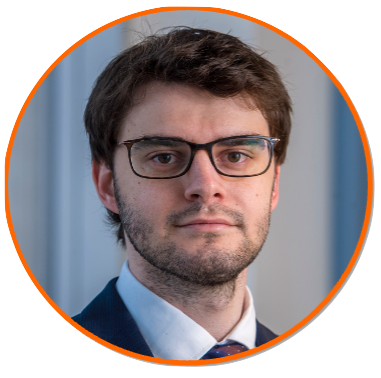Practical information

Unpacking EU Return Migration Policy: A Set-theoretic Analysis of EU Readmission and Return Policy with Third Countries
The public defence of Philippe Stutz will take place in a hybrid format:
Abstract
The European Union’s cooperation with third countries on readmission and return varies to a large extent. Both policies – return and readmission – are discussed as part of a package in the EU context and moved to the centre of EU migration policy efforts towards third countries. Yet, concluding agreements and informal arrangements on readmission has proven to be challenging for the Union. The EU is not only concerned about the regulation of the cooperation. It also seeks to enhance the return rates of irregular migrants, often framed in terms of ensuring the ‘effectiveness’ of its return policy. The return rates, however, have stalled or even declined since 2016. The differences and interconnections between readmission and return policy have rarely been explored beyond small-n research designs.
This PhD dissertation seeks to fill this gap and investigates three aspects of EU readmission and return policy with third countries: (1) the conditions under which the EU concludes readmission agreements and arrangements; (2) the conditions under which the EU’s return rate is high or low; and (3) the impact of readmission cooperation on return numbers. To that end, a comparative research design with two fuzzy-set Qualitative Comparative Analysis (fsQCA) is developed. It identifies (combinations of) conditions which help to explain empirical phenomena, here EU readmission and return cooperation. The examined conditions are: migration flow; democracy; administrative capacities; economic dependence; existing relations; incentives; bilateral readmission cooperation; and readmission cooperation (for the second QCA on return cooperation). These conditions have been conceptually drawn from the literature on EU external (migration) cooperation. Two fsQCA are conducted consecutively with 57 third countries in the neighbourhood and beyond. The results of both fsQCA are juxtaposed to establish the relationship between EU readmission and return cooperation.
Regarding the cooperation on readmission, countries geographically closer to the EU concluded readmission agreements primarily due to their dependence on the EU; EU-offered incentives played a bigger role for geographically more distant countries; additionally, countries in Asia and Africa concluded informal arrangements often by means of pressure. Regarding cooperation on return, high(er) return rates can be explained for two groups of countries: countries with many irregular migrants if the EU offers incentives to countries with high levels of administrative capacities and a high number of bilateral readmission agreements; and countries with few irregular migrants if there are high levels of administrative capacities and close existing relations with the EU. Overall, formal or informal readmission cooperation has only a limited degree of influence on return rates/cooperation and if so, mostly concerns countries in the Eastern neighbourhood.
The thesis provides new insights for our knowledge on the EU’s readmission and return cooperation and critically discusses the issue of ‘effectiveness’ often voiced in relation to migrant returns. In fact, this research strives for both an empirical and a theoretical contribution to the field of EU readmission and return policy as well as EU external migration cooperation more broadly.
Programme
15:30 - 15:40: Welcome by Chair, Prof. Sebastian Oberthür, Ph.D (Brussels School of Governance, VUB)
15:40-16:00: PhD presentation by Philipp Stutz
16:00 – 16:35 PhD defence - Jury Questions
Order of jury questions:
- Prof. Ingo Rohlfing, Ph.D (University of Passau)
- Prof.Tuba Bircan, Ph.D (Cambridge University & VUB)
- Prof. Jean-Pierre Cassarino, Ph.D (College of Europe Natolin)
- Prof. Jamal Shahin, Ph.D (Brussels School of Governance, VUB)
16:35 – 16:45 Q&A with the audience
16:45 – 16:55: Deliberation
16:55 – 17:05 Conferment of degree
17:05 – 17:20 : Speech by co-supervisors, Prof. Florian Trauner, Ph.D & Prof. Ilke Adam, Ph.D (Brussels School of Governance, VUB)
17:20 – 17:35: Speech by Philipp Stutz